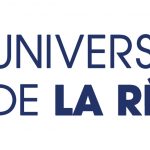
Fostering research excellence
in EU Outermost Regions


Fostering research excellence
in EU Outermost Regions

La Reunion
Education organisation
Research centers or research group
The University of Reunion Island is a French higher education and research establishment at the heart of the Indian Ocean, in one of Europe’s Outermost Regions. Its unusual geostrategic position, shows that it is the only European university in this part of the world.
Each year, the university welcomes more than 15,000 students in buildings of over 100.000 m2 in Saint-Denis (Le Moufia, La Victoire, the University Technology Park and Bellepierre), as well as in sites in Le Tampon and Saint-Pierre (technology institute and university hospital training centre).
With its educational and research activities, international profile and student life, the University of Réunion Island has numerous advantages to fully perform its role as an interface between Europe and the Indian Ocean.
The university has over 80 graduate and postgraduate degrees in a wide range of high quality full-time and vocational courses :
Research work underpins the quality of education. Research is conducted at the University’s 21 laboratories and based on three federations, reflecting Reunion’s potential as a subject for study.
This immense potential has given rise to three major research topics :
Aims : To establish a Human and Social Sciences observatory for Indian Ocean societies, to help apply and share research findings in the sector, as well as retrace changes in these societies and the links within and outside the region.
Aims : To expand the monitoring and analysis capacities of natural areas, and to develop information technologies and mathematical tools for environmental studies in order to better inform public authorities.
Goals : To promote exchange and cooperation between all researchers working on the subject of biodiversity and to act as a springboard for French and European funding
requests, with co-funding from local authorities.
The University of Reunion Island has established outstanding facilities with its partners to develop research projects such as :
Lastly, the University has a support service, the Research Centre, to promote the development of research. It produces and manages research budgets, supports the three
research federations, administers research bodies, assists researchers to develop research projects and promotes and develops the national strategy for scientific, technical and industrial problematic with a group of engineers at its disposal.
In 2013, the University of Reunion Island created a «Europe office» within in the Research Centre to link researchers to the major European research institutions by developing
Horizon 2020 projects.
The University of Reunion Island has forged a wide range of partnerships at local, regional, national, European and international levels.
These cover various levels and focus on training tasks, especially vocational training, research, development and innovation.
The University of Reunion Island creates close ties with public sector bodies (Reunion Regional CouncilNexadevolved government departmentsCAF (family allowance service), etc.), private sector associations and professional organisations.
In terms of research and innovation, the University of Reunion Island has established successful partnerships with national organisations working, or represented, on the island (CIRAD IRD IFREMER CNRS INSERM IPGP Météo France and other French universities), as well as specialised private bodies, such as QUALITROPIC, Témergie and the Reunion Technopole science park association, etc.
The University of Reunion Island has signed numerous international partnership agreements with foreign universities, having student and researcher exchange schemes with Madagascar, Mauritius, South Africa, Australia, India, China and Quebec, etc.
This immense potential has given rise to three major research topics :
Aims : To establish a Human and Social Sciences observatory for Indian Ocean societies, to help apply and share research findings in the sector, as well as retrace changes in these societies and the links within and outside the region.
Aims : To expand the monitoring and analysis capacities of natural areas, and to develop information technologies and mathematical tools for environmental studies in order to better inform public authorities.
Goals : To promote exchange and cooperation between all researchers working on the subject of biodiversity and to act as a springboard for French and European funding
requests, with co-funding from local authorities.
The University of Reunion Island has established outstanding facilities with its partners to develop research projects such as :
Lastly, the University has a support service, the Research Centre, to promote the development of research. It produces and manages research budgets, supports the three
research federations, administers research bodies, assists researchers to develop research projects and promotes and develops the national strategy for scientific, technical and industrial problematic with a group of engineers at its disposal.
In 2013, the University of Reunion Island created a «Europe office» within in the Research Centre to link researchers to the major European research institutions by developing
Horizon 2020 projects.
The University of Reunion Island has forged a wide range of partnerships at local, regional, national, European and international levels.
These cover various levels and focus on training tasks, especially vocational training, research, development and innovation.
The University of Reunion Island creates close ties with public sector bodies (Reunion Regional CouncilNexadevolved government departmentsCAF (family allowance service), etc.), private sector associations and professional organisations.
In terms of research and innovation, the University of Reunion Island has established successful partnerships with national organisations working, or represented, on the island (CIRAD IRD IFREMER CNRS INSERM IPGP Météo France and other French universities), as well as specialised private bodies, such as QUALITROPIC, Témergie and the Reunion Technopole science park association, etc.
The University of Reunion Island has signed numerous international partnership agreements with foreign universities, having student and researcher exchange schemes with Madagascar, Mauritius, South Africa, Australia, India, China and Quebec, etc.